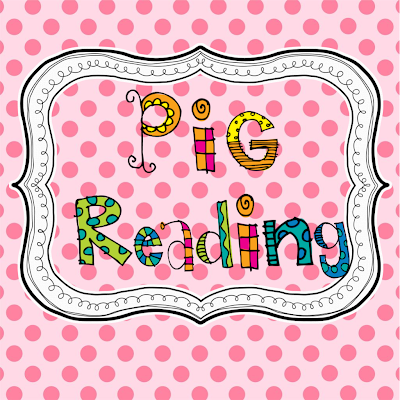Tuesday, April 23, 2013
Common Core State Standards
NOTE TO PARENTS:
In the upcoming 2013-2014 school year, schools in the state of Alabama will be adopting and implementing the Common Core State Standards (CCSS), which are a national set of learning expectations for college and career success that were developed by teachers, parents, school administrators, and education experts. These newly adopted standards provide a consistent, clear understanding of what students are expected to learn in K-12 math and language arts. While there are many similarities between the existing Alabama course of Study Standards and the CCSS, you might notice changes in what content is emphasized and the grade in which the content is taught. For example, there is an increased emphasis on informational text in elementary school in the new standards.
The purpose of adopting the CCSS is not simply to align with other states, but rather to raise the bar in all grades to ensure that our students are receiving a relevant and rigorous education. The adoption of the CCSS means that your child will be better prepared to meet the demands of college and/or the work place in the 21st century. Today's global economy means that our students need to possess academic standards by the completion of twelfth grade to ensure their success in college and /or workforce. For additional information please go to www.corestandards.org. In addition, the National PTA has organized resources to help parents support their child. Information can be found at www.pta.org/common_core_state_standards.asp
Friday, February 22, 2013
What Does Common Core Mean to Us Teachers?
Here’s another way to think about it.
You’d see:
- Less of teachers lecturing and more of teachers modeling.
- Less of students listening and more of students constructing meaning together.
- Less of teachers turning to the next page in the textbook and more of teachers using formative assessments to determine what’s next.
- Less of students recalling (although sometimes this is necessary) and more of students transferring their learning to new experiences.
- Less of teachers hurrying to cover more content and more of teachers slowing down to insure deep understanding and application.
- Less of students reading from secondary sources and more of students wrestling with primary texts in every subject area.
Tuesday, September 25, 2012
Igniting a Passion for Reading
Okay....so I had the awesome opportunity to go to a workshop where Dr. Steven Layne presented!! He is the BOMB! Talk about Igniting a Passion! He ignited a FIRE in me! I am so excited and want my entire school to be JUST AS EXCITED. My mind has been into overdrive. So many of his ideas are CHEAP and purposeful. If you don't have a copy of his book, Igniting a Passion for Reading, you should get one!!
"It should be every teacher's aim to give every child a love of reading, a hunger for it that will stay with him through all the years of his life. If a child has that he will acquire the mechanical part without difficulty. " (Mayne ~1915)
Tuesday, April 24, 2012
Common Core Standards and Writing
Just recently I have dipped...and when I say dipped...I'm talking about my pinky toe...into checking out the CCS and the impact it will have on 1st and 2nd grade reading and language arts. Writing is one of those areas that I have focused on. Our school uses Scott Foresman-Reading Street. Personally, I really like it. But like with any textbook/series adoption, there are gaps that may not fit the needs of your students. Writing is going to be one of those gaps that we will have to fill. So, I have started researching some literature on writing. Yesterday I researched Lucy Calkins. I would love to hear from anyone that is familiar with her work with Writing Workshop.

“It is terribly important for kids to read and write for the reasons that people the world over read and write, which is to communicate, to be delighted, to laugh.”- Lucy Caulkins
THIS IS HOW I WOULD LOVE FOR OUR CLASSROOMS TO BE:
What does a Writing Workshop classroom look like?
Small groups of students are busy throughout the room. In a corner Carl and Steven are conferencing about Steven’s dinosaur story. Kathy is at the publishing center designing the cover for her personal narrative about the day she broke her arm. Mrs. Lyle, the teacher, is conferencing with Carlos about his mystery story. Gregory is intensively working on his book of animal poetry. An author’s chair is positioned at the front of the room. Posters explaining the steps of the writing process are posted on the walls. Student writing is very visible. Children have easy access to the tools they need such as pencils, paper, thesauruses, and dictionaries.There is energy in the room as children purposefully converse with each other about their writing.
Thursday, April 12, 2012
PIG READING!


Are you looking to increase student fluency this time of year?? Then this is a GREAT way to do just that. PIG read...Partner read- read Independently-and Group read. This packet also includes activities that focus on weekly skills for Unit 6 Reading Street. Check it out my teacherspayteachers store!
Monday, March 19, 2012
SWBS Chart

Great strategy to use with students to increase comprehension and help with plot. Several of our teachers are now using this and have seen it make an impact in student learning. After having modeled this activity whole group several times, this can be copied onto card stock and laminated. Then, teachers can place in a center for groups to work on together. Students can write on post it notes and place in the boxes.
Saturday, March 17, 2012
Second Grade Unit 5 Quick Writes
Subscribe to:
Comments (Atom)

